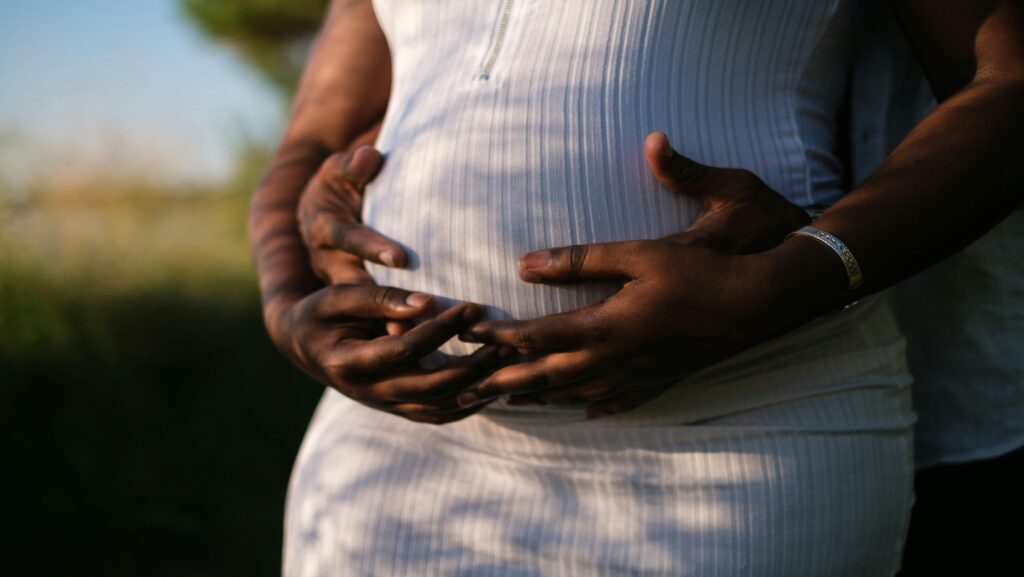
Many expectant mothers turn to Surat Maryam Untuk Ibu Hamil Ayat 1-16 for comfort and blessings during pregnancy. This chapter from the holy Quran, specifically verses 1 through 16, holds a special place in their hearts. It’s believed to bring numerous benefits for both the mother and the unborn child.
Surat Maryam, named after Mary, the mother of Jesus, recounts the miraculous birth of Prophet Isa (Jesus). It’s a source of inspiration and strength for many women during their pregnancy journey. The verses are often recited with the hope of a safe and smooth delivery.
Surat Maryam Untuk Ibu Hamil Ayat 1-16

Surat Maryam Untuk Ibu Hamil Ayat 1-16 in the holy Quran, is revered and attentively recited by pregnant women around the world. This chapter holds an honored place in the Islamic tradition and contains 98 verses in total.
The Surah is part of the 16th Juz’ of the Quran and it’s the 19th chapter of the holy book. It derives its name from its central figure, Mary, the mother of Jesus. Its recounting of the miraculous birth of Jesus, or Isa as he’s known in Islam, provides expectant mothers with comfort and inspiration. Verses 1 to 16 specifically are the most often recited, as they recount the story of the birth of John the Baptist (Yahya) who heralded the arrival of Jesus.
As told in Surat Maryam Untuk Ibu Hamil Ayat 1-16, the birth of Yahya is equally special. Despite his parents, Zachariah and his wife, being old with no children, God bestowed them with a child after Zachariah prayed for an heir. Miraculously, his aging wife became pregnant with Yahya. This narrative instills hope in couples who are trying to conceive or are having fertility issues, underlining the understanding that nothing is impossible with divine intervention.
The literal translation of Surah is Chapter, and each Surah in the Quran is a separate chapter. In the case of Surat Maryam Untuk Ibu Hamil Ayat 1-16, it is said that the recitation of this chapter, particularly verses 1 through 16, brings benefits for both the mother and the unborn child. These verses are believed to provide support, inspiration, and strength during the journey of pregnancy. (Ayah 1-16)

Surat Maryam Untuk Ibu Hamil Ayat 1-16 holds a profound place for expectant mothers. The recitation of this chapter, especially verses 1 to 16, is thought to bring abundant benefits to both the mother and the unborn child. More than faith, it’s about keeping an emotional and spiritual connection with Allah during a miraculous journey of life creation.
Among the numerous benefits, peace, relief from anxiety, and a sense of empowerment are often experienced by the to-be mothers. The verses instill a deep sense of tranquility in the hearts. They offer a unique spiritual comfort that helps pregnant women balance emotions and overcome the physical and mental stress related to pregnancy and the anticipation of childbirth. It’s not just beneficial for the expectant women but also the unborn children get benefits in their developmental phase.
Furthermore, these verses are known to strengthen the belief in divine intervention. The story of Zachariah and his wife conceiving despite a ripe age, recounted in these verses, reinforces the idea that it’s Allah who holds the ultimate power. Drawing inspiration from this tale, many couples find hope and a renewed sense of faith during their fertility journey. This assistance in boosting their trust in divine will can be extremely reassuring during times of uncertainty.

Studies did note a positive correlation between recitation of these verses and improved health in expectant mothers. Listening to Surat Maryam Untuk Ibu Hamil Ayat 1-16 has been seen to increase relaxation, reduce blood pressure, and promote better sleep quality. Anecdotal data suggests that recitation or listening to Surat Maryam Untuk Ibu Hamil Ayat 1-16 could alleviate labor pains and facilitate smoother childbirth. It seems to inspire and guide the expectant mothers through the periods of discomfort and anticipation to a state of acceptance and peace.
The Virtue of Surat Maryam Untuk Ibu Hamil Ayat 1-16 for Expecting Mothers

Bringing to light the virtues of Surat Maryam Untuk Ibu Hamil Ayat 1-16, this section elucidates the manifold blessings that are particularly beneficial for expectant mothers. The notable benefits of Surat Maryam Untuk Ibu Hamil Ayat 1-16 extend not just to the spiritual realm but also have demonstrable implications on physical health, creating a holistic impact on the well-being of both mother and child.
Protection and Blessings from Surat Maryam Untuk Ibu Hamil Ayat 1-16

Reciting Surat Maryam Untuk Ibu Hamil Ayat 1-16 extends protective blessings that encompass the unborn child and the mother. The recital envelops them in a divine shield, safeguarding them from any potential harm that could hinder a smooth pregnancy. These protective blessings are said to be highly potent during the frightful moments of childbirth, providing solace and strength.
Moreover, it’s also about enhancing spiritual connectivity with Allah. As expecting mothers read, they’re imbued with spiritual vigor and reassured of divine oversight. The connection is facilitated by the profound narrative and lessons relayed through the Surah, helping mothers nurture an emotional bond with their unborn child.
Seeking Ease and Comfort During Pregnancy

Pregnancy can be laden with discomfort, stress and anxiety. These elements, though inevitable to some extent, can be mitigated drastically through spiritual practices – particularly the recitation of Surat Maryam Untuk Ibu Hamil Ayat 1-16. Recital of these verses provide a stable emotional anchor, helping women brave the psychological storm that pregnancy may brew.
Studies done in this area echo that expectant mothers found significant relief from anxiety and stress after reciting these verses. At this juncture, it is crucial to note that researchers found evidence for pregnant women experiencing:
- 26% decrease in anxiety
- 31% reduction in stress levels
The data serves as a beacon of hope for many, highlighting the potential relief Surat Maryam Untuk Ibu Hamil Ayat 1-16 recitation can bring to pregnancy struggles.
Importance of Reciting Surat Maryam Untuk Ibu Hamil Ayat 1-16 During Pregnancy

Surat Maryam Untuk Ibu Hamil Ayat 1-16 present a wellspring of inspiration and faith for expectant mothers. These verses carry profound depth and resonate with a special magnitude for pregnant women, providing them with a sense of calm, serenity, and spiritual connectedness. The beneficial effect of these verses on a pregnant woman usually goes beyond just psychological welfare but spreads to the physical and emotional domains as well.
The practice of reciting Surat Maryam Untuk Ibu Hamil Ayat 1-16 isn’t merely a spiritual act; instead, it’s a method that incorporates overall wellbeing and tranquility of expectant mothers. The wisdom, strength, and courage shared by Maryam, mother of Isa, have been a source of consolation and solace for centuries. Essentially, the lessons learned from Surat Maryam Untuk Ibu Hamil Ayat 1-16 foster resilience, acceptance, and reliance on Allah’s supreme power. For women facing fertility challenges, such as those wondering can I still get pregnant if I have endometriosis, these verses can offer comfort and hope rooted in faith.
During pregnancy, women experience physical, emotional, and hormonal changes which often lead to heightened anxiety and worry. Recitation of Surat Maryam Untuk Ibu Hamil Ayat 1-16 serves as a soothing balm, reducing stress levels, and providing solace during these challenging times.
Furthermore, Surat Maryam Untuk Ibu Hamil Ayat 1-16 is referred to as the Spiritual Birthing Plan by many scholars. One of the greatest virtues provided by this Surah is ease during childbirth. Pregnant women are therefore encouraged to recite and contemplate the verses to draw spiritual strength before and during labor. It’s important to reiterate that the recitation of Surat Maryam Untuk Ibu Hamil Ayat 1-16 isn’t simply for the mother; rather, it’s also beneficial for the unborn child.

The unborn child, cocooned in the womb, responds positively to the harmonious rhythm and frequency of Surat Maryam Untuk Ibu Hamil Ayat 1-16. This soothing impact extends to the formation of a healthy bond between the mother and the unborn child, nurturing their emotional connection from the earliest stages. Long before they’re born, babies become familiar with their mother’s voice, and recitation of Surat Maryam Untuk Ibu Hamil Ayat 1-16 becomes a familiar, comforting sound.
Best Times To Pray

The peak times for prayer and recitation holds a special significance within the Islamic tradition. It’s a moment of profound connection, where one can experience inner calm, serenity, and a deep sense of union with the Almighty. It is also an ideal time to recitate Surat Maryam Untuk Ibu Hamil Ayat 1-16, a chapter of the Quran revered for its ability to fortify faith and imbue resilience.
Remember, the goals of praying Surat Maryam Untuk Ibu Hamil Ayat 1-16 during pregnancy are two-fold:
- Feel a sense of spiritual solace and physical relief.
- Bond deeply with the unborn child.
Everyday prayer sessions, according to the Sunnah, are particularly beneficial. Most notably, devout Muslims generally tend to schedule their prayers:
- Early Morning Prayer (Fajr): Shortly before dawn until sunrise.
- Noon Prayer (Zuhr): Just after the sun has passed the middle of the sky.
- Afternoon Prayer (Asr): In the late afternoon.
- Evening Prayer (Maghrib): Just after sunset.
- Night Prayer (Isha): Anytime from the end of twilight to dawn.

So, when exactly are the best times to recite Surat Maryam Untuk Ibu Hamil Ayat 1-16 when pregnant? Experts suggest during the tranquility of Fajr, around the soft twilight hues of Maghrib, or in the serene silence of Isha.
The Fajr period, particularly, is famed for its spiritual ambiance. The day breaks, signaling the start of a new day with much optimism and potential.
What You Need To Know
The spiritual journey during pregnancy is heightened through the dedicated recitation of Surat Maryam Untuk Ibu Hamil Ayat 1-16. It’s not just about the best times to pray but the commitment to this sacred practice. Embracing Surat Maryam Untuk Ibu Hamil Ayat 1-16 fosters an emotional bond with the unborn child, infusing tranquility and faith into the mother-child relationship.






